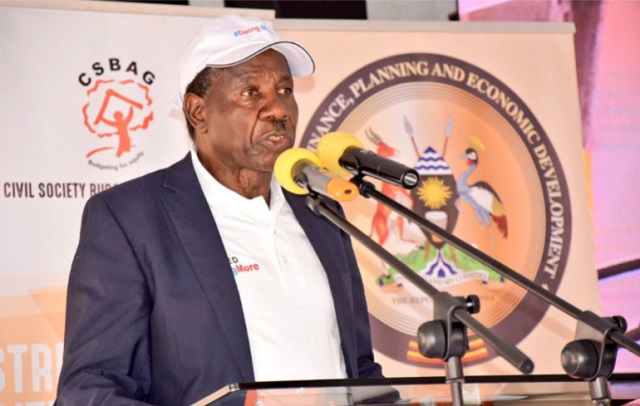
It aims at putting citizens at the centre of its formulation, implementation
Kampala, Uganda | JULIUS BUSINGE | “The budget is no longer interesting to us. We no longer listen to it because it does not give information that we want as farmers. Many years ago, the minister would read the budget and inform us about the changes in the price of coffee and other commodities. Today the budget does not target majority of us people in the agriculture sector.”
These were the words of a man seemingly in his late 50s hailing from Buwama in Mpigi District who took part in the budget service exhibition week held at the Kololo Independence Grounds from June 5-7, ahead of budget reading on June 13.
Matia Kasaija, the minister for Finance, Planning and Economic Development said gone are the days when the budget making process was for only the President, the Minister of Finance and a few technocrats.
“We have now changed that; the budget making process is now transparent,” he said.
Kasaija said the new initiative is aimed at enhancing budget literacy and citizens’ engagement in prioritization, budgeting and oversight for poverty-reducing interventions.
It also intends to strengthen budget transparency by disseminating budget information and generating feedback from citizens and thus enhance accountability for improved public service delivery.
It is partly due to these initiatives that Uganda was recognised by the Open Budget Survey of 2017 conducted by the Uganda Debt Network and International Budget Partnership (IBP) for having the second most transparent budget in Africa after South Africa.
Prime Minister, Ruhakana Rugunda said budget events are critical for the people to know their budget and participate in its formulation and performance.
He said the implementation of the budget has over the years been successful because of the proper designing of government programmes and good coordination between government agencies and supporting partners.
For instance, Rugunda said the number of kilometers of tarmac roads increased from 3, 050 in 2017/2018 to 4,551 in 2018/2019; electricity generation increased to around 1,200 MW with the coming onboard of Isimba hydropower dam (183MW) and other mini-hydros.
He also said tremendous achievements have been recorded in the education, health, agriculture and other sectors.
Going forward, Kasaija said budget service exhibition week would be held annually targeting different regions countrywide.
He urged the members of the public to follow up and demand for accountability from the government in order to improve the delivery of services.
Creating opportunities
Gideon Badagawa, the executive director of the Private Sector Foundation Uganda said the budget transparency initiatives are important for creating opportunities and strengthening governance.
“The private sector has been deeply involved in the process and we will continue to support it,” he said.
Badagawa said most government officials at local government level needed to interrogate the budget and understand it because they are the core in service delivery to the people.
Doris Akol, the commissioner general of the Uganda Revenue Authority, said the taxman is in support of budget transparency initiatives because it would fill gaps in revenue collection, budget expenditure and overall service delivery.
She said the URA has invested heavily in automation of systems to easily facilitate their engagement with the taxpayers.
“We are now better placed to render services and playing a significant role in financing the country’s development,” Akol said.
In another speech read for him by Junior Finance Minister, Evelyn Anite, Kasaija said that over 120 government ministries, departments and agencies and around 17 civil society organisations showcased their products and services during the three day exhibition event. That 2400 people received the Yellow Fever Vaccine, 248 units of blood were collected and 3000 litres of milk were distributed.
He said that the national budget month activities in general and the service excellence activities have facilitated public awareness and understanding of how the national budget has been spent by various ministries, departments and agencies.
The activities have created and inspired inroads in public ownership of the national budget and buy-in for government programmes. There has also been improved collaboration between the different government agencies in demonstrating accountability for public resources and there is increase in public awareness about the key government programmes and how the public can get involved in demanding better services.
Kasaija said the public needs more sensitisation on government programmes; there is an even greater demand for government interventions in the everyday lives of Ugandans in the areas of health and agriculture.
Kasaija said that through the exhibition week, government had been able to account to the public and to obtain feedback that will lead to an improvement in the delivery of services.
****
 The Independent Uganda: You get the Truth we Pay the Price
The Independent Uganda: You get the Truth we Pay the Price



